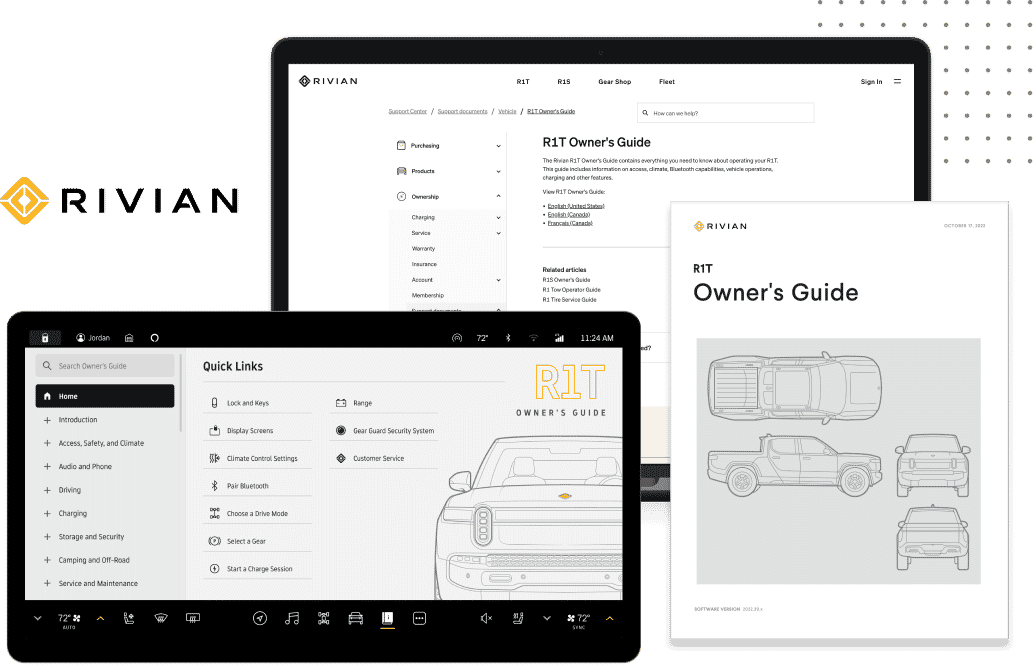In The Press
MadCap Software Adds Silverlight Support to State-Of-The-Art Software Simulation
MadCap Mimic 2.0 Native XML Software Simulation Application Expands Online and Print Output Options, Enables Translation Via MadCap Lingo
La Jolla, CA, USA – June 9, 2008 — MadCap Software, the leader in multi-channel content authoring and a showcase company for Microsoft (NASDAQ: MSFT) Visual Studio 2005 and Microsoft XPS, today announced the availability of Mimic 2.0. MadCap’s native XML, state-of-the-art software simulation application adds new online and print output options, as well as support for MadCap Lingo to facilitate translation.
“Last year, Mimic set a new standard for enriching business communications through Web-based movies,” said Anthony Olivier, MadCap Software CEO. “With Mimic 2.0, we’ve raised the bar by making our best-in-class features for simulation, recording, and editing available to the broader range of output formats and languages used by enterprises around the world.”
Central to Mimic 2.0 is support for Microsoft Silverlight, the cross-browser, cross-platform, and cross-device plugin for delivering the next generation of .NET-based media experiences and rich interactive applications for the Web. Now content authors and trainers can generate Mimic output in Silverlight to take advantage of the smaller file size for delivering rich Internet content. Additionally, the preloading capability available with Silverlight gives users a more real-time experience.
“Microsoft is very excited with the Silverlight integration that MadCap Software has added to Mimic,” said Tim Sneath, group manager for Client Platform Evangelism at Microsoft. “The combination of Silverlight and MadCap Mimic, which takes advantage of the Microsoft .NET Framework, enables a rich, Web-enabled delivery vehicle for eLearning, technical support, online Help, and sales and marketing.”
In addition to Silverlight, Mimic can generate online software simulation movies in Mimic’s proprietary movie format, Adobe Flash—and new to Version 2.0, the Adobe Integrated Runtime, Adobe Air, for rich Internet media. Mimic 2.0 also for the first time can generate print output in the Microsoft XML Print Specification (XPS) and Adobe PDF.
Like all MadCap documentation and authoring solutions, Mimic offers Unicode support for all left-to-right languages, so access to these XML files is especially useful for translating movies into a range of Western and Asian languages. Mimic 2.0 adds integration with MadCap Lingo, the industry’s only fully integrated translation memory system and authoring tool. As a result, users can remain in their Mimic projects while using MadCap Lingo to facilitate translation and preserve important content and formatting.
“The growth in global business is driving the demand for localized content to support the needs of customers, partners and employees, but translating the rich content of simulation movies presents special challenges,” said Patricia Dear, product manager for MadCap Mimic. “The integration of Mimic 2.0 with MadCap Lingo helps bring down barriers to localization by simplifying the translation process and eliminating file transfers that lead to errors.”
Mimic Offers Flexible, Integrated Editing
Mimic follows in the footsteps of Flare, MadCap’s flagship multi-channel content authoring software. Like Flare, Mimic is a flexible, open-architecture application that produces XML files. This allows users to open movie files—before or after generation—and edit text in individual movie frames.
Mimic also is tightly integrated with Flare, making the software simulation application particularly user-friendly for authors of online content. Mimic can be launched from within the Flare interface, and Flare authors can quickly insert links to Mimic movies from topics, tables of contents, and browse sequences.
A powerful feature of Mimic’s integration with Flare is the use of variables (content that can be customized as needed for delivery to different audiences). A user can, not only directly insert a variable into Mimic, but also create a link to a Flare project, so that the Flare project’s variables can be inserted into the Mimic movie. Using this feature, which is unique to MadCap’s software, an author can modify a definition for the linked variable in Flare, and it will change in Mimic movies simultaneously, resulting in true single-sourcing across the two products.
The smaller size of movies generated in the Mimic movie format means authors can include instructional movies while ensuring that the overall size of a Help or training system does not become bloated. Additional key Mimic features include automatic or manual recording, a wide variety of recording options, a visual timeline, audio integration, palettes for re-using buttons and other frame objects, input boxes, animated typing boxes, and various special effects.
Pricing and Availability
Mimic 2.0 is available today both separately and as part of the MadCap MadPak, the industry’s first single-source suite for multi-channel publishing. A standalone Mimic package is priced at $299 per license. The MadPak, which also includes MadCap Flare, Capture, Echo and Analyzer, is available for $1,299 per license. Annual support starts at $149 per year.
About MadCap Software
MadCap Software is a trusted resource for thousands of companies around the globe for single-source, multi-channel authoring and publishing solutions designed to streamline the process of developing and delivering training content, learning and development programs, technical documentation, online Help, knowledge bases, and more. From authoring, publishing and translation, to cloud-based content management system, to contribution and review in the cloud, you can streamline content delivery and manage the entire content development lifecycle with MadCap Software. MadCap Software’s services include product training, consulting services, translation and localization, and an advanced developer certification program. Headquartered in San Diego, California, with offices in Austin, TX, MadCap Software is home to some of the most experienced software architects and product experts in the content development industry.




